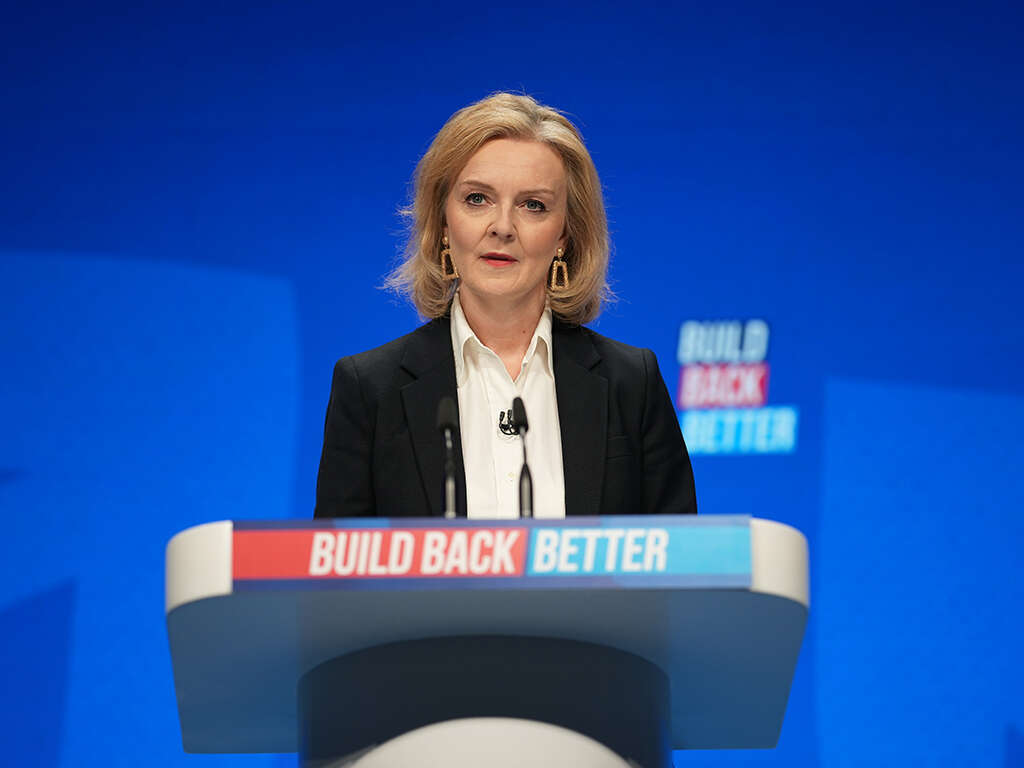
I organised Liz Truss’s local radio interviews – here’s how it all unfolded
Sometimes local radio and regional news programmes get overlooked, but not that day.
ByNew Times,
New Thinking.

Elizabeth Truss was prime minister from 6 September 2022 to 25 October 2022. Her tenure in the job, marked by unrest in financial markets, was the shortest in British history. She studied philosophy, politics and economics at Merton College, Oxford. She is married and has two children, and was elected as Conservative MP for South West Norfolk in 2010. In 2014 David Cameron appointed her as Environment Secretary, and, at 38, she was the youngest female member of his cabinet. After that she became the first female Lord Chancellor and the first female Conservative foreign secretary.

Sometimes local radio and regional news programmes get overlooked, but not that day.
By
Fifty years after the seminal Limits to Growth report, climate experts have written a survival guide for the planet.
By
Liz Truss and Kwasi Kwarteng have handed Labour its biggest poll lead in decades – and Conservative MPs are terrified.
By
If only markets understood the very clever pro-growth plan, none of this would have happened.
By
What do Liz Truss and Kwasi Kwarteng really want? To maintain Britain’s standing as a rentier's paradise – and they…
By
The PM is marching on in defiant hope – but the ruthless Conservative machine may eject her if there is…
By
The government’s giveaway to the rich may be matched by real-terms cuts to benefits for the poorest and most vulnerable.
By
It was a mistake to absent herself from the Today programme, believing she’d have an easier time elsewhere.
By
The riotous market response to the mini-Budget has, for some Tory MPs, destroyed the PM’s authority as party leader.
By
The number of people who will be qualified to write their own “Down and Out” column is about to go…
By
Even if Labour wins the next election it risks inheriting a wasteland after two more years of Tory government.
By
In a new era of permanent crisis, voters crave security, not Liz Truss and Kwasi Kwarteng’s free-market utopianism.
By
If investors believe the Bank is no longer able to control monetary policy, the UK’s economic crisis will deepen.
By
The free-market thinkers and ideas behind the most radical economic experiment in Britain for 40 years.
By
Many of the headline measures announced by Kwasi Kwarteng are actually popular – but the mini-budget overall is not.
By
The virus that infected the Tories during the Brexit years has led to ever more delusional beliefs.
By
The slide in sterling indicates that traders are cynical about Liz Truss’s big gamble on growth.
By
As the keys to No 10 are handed over, policy leaders share their thoughts on the biggest issues facing the…
By
As Labour Party Conference begins, Anderson discusses the city’s political crisis and the tragedy of the recent shootings.
By
The Prime Minister says she’s happy to be unpopular – a bold position for someone who must face the electorate…
By